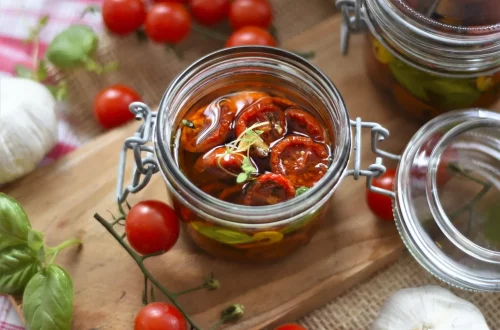
Can Cats Safely Drink Goat Milk? Here’s What You Should Know
Cats are known for their discerning tastes and often peculiar preferences when it comes to food and drink. As a pet owner, you may find yourself questioning what’s safe and beneficial for your feline friend. Among the various options available, goat milk has garnered considerable attention due to its rich nutritional profile and popularity among humans. However, the question remains: can cats safely drink goat milk?
Understanding your cat’s dietary needs is crucial, as their digestive systems are quite different from those of humans. While some foods and drinks are safe for cats, others can lead to health issues. As you explore the options for enhancing your cat’s diet, it’s essential to consider the implications of introducing any new food, including goat milk. Some pet owners may view goat milk as a wholesome treat, while others may have reservations based on common misconceptions about dairy products and feline health.
Ultimately, making informed decisions about your pet’s diet can contribute to their overall well-being. Therefore, as we delve into the topic of goat milk and its effects on cats, it’s vital to examine its nutritional benefits, potential risks, and the best practices for incorporating it into your cat’s diet.
Nutritional Benefits of Goat Milk for Cats
Goat milk is often touted as a more digestible alternative to cow’s milk, and this can hold true for cats as well. The primary reason for this is that goat milk contains a different protein structure and fat composition, making it easier for some animals to process. For cats, who are obligate carnivores, the nutritional profile of goat milk may offer some benefits when consumed in moderation.
One of the standout features of goat milk is its rich content of vitamins and minerals. It is a good source of calcium, which is essential for maintaining healthy bones and teeth. Cats require calcium for various bodily functions, including muscle contraction and nerve transmission. Additionally, goat milk contains potassium, which helps regulate fluid balance and supports overall cellular function.
Moreover, goat milk has a relatively high concentration of vitamin B, particularly B2 (riboflavin) and B12. These vitamins play vital roles in energy metabolism and maintaining a healthy nervous system. Vitamin B12, for instance, is crucial for the formation of red blood cells and the proper functioning of the brain.
Another potential benefit of goat milk is its probiotic content. Probiotics are beneficial bacteria that can aid in digestion and promote a healthy gut microbiome. A balanced gut flora can enhance nutrient absorption and support your cat’s immune system. However, it’s essential to note that not all goat milk products contain live probiotics, so you should check the label if you’re considering this aspect.
While there are several nutritional benefits associated with goat milk, moderation is key. Cats have unique dietary requirements, and their primary source of nutrition should always come from high-quality cat food that meets their specific needs. Goat milk can serve as an occasional treat rather than a staple in their diet.
Potential Risks of Feeding Goat Milk to Cats
Despite the nutritional benefits, there are potential risks associated with feeding goat milk to cats that pet owners should be aware of. One of the primary concerns is lactose intolerance, which is prevalent among many adult cats. While goat milk contains less lactose than cow’s milk, it still may not be suitable for all felines.
Lactose intolerance occurs when a cat’s body lacks sufficient lactase, the enzyme responsible for breaking down lactose. When lactose is not properly digested, it can lead to gastrointestinal upset, including diarrhea, vomiting, and abdominal discomfort. If your cat has never consumed dairy before, introducing goat milk could result in an unpleasant reaction.
Additionally, some cats may have allergies or sensitivities to certain proteins found in goat milk. Symptoms of a food allergy can range from mild to severe and may include itching, skin irritations, or digestive problems. If you notice any adverse reactions after giving your cat goat milk, it’s crucial to discontinue it immediately and consult your veterinarian.
Furthermore, while goat milk can be a source of hydration, it should not replace fresh water. Cats are known for their low thirst drive, and relying too heavily on any liquid other than water can lead to dehydration. Always ensure that your cat has access to clean, fresh water at all times.
Lastly, overindulgence in goat milk can lead to an imbalance in your cat’s diet. Treats and extras should account for no more than 10% of your cat’s daily caloric intake. If goat milk is given too frequently or in excessive amounts, it could lead to weight gain or nutritional deficiencies.
How to Introduce Goat Milk to Your Cat
If you decide to introduce goat milk to your cat’s diet, it’s important to do so gradually and carefully. Start with a small amount to assess your cat’s tolerance. A teaspoon or two is a good starting point. Monitor your cat for any signs of gastrointestinal distress or allergic reactions within 24 hours after feeding.
Once you have determined that your cat tolerates goat milk well, you can gradually increase the amount, but always keep it as an occasional treat. It’s essential to maintain a balanced diet that primarily consists of high-quality cat food, ensuring that your cat receives all the necessary nutrients from their main meals.
When choosing goat milk, opt for products that are free from additives, preservatives, and artificial flavors. Some brands offer goat milk specifically formulated for pets, which may also contain added nutrients or probiotics. Always read the labels and choose the highest quality option available.
You can serve goat milk alone, or you might consider incorporating it into interactive feeding games. For instance, you can place a small amount in a shallow dish or use it to entice your cat to play with their toys. This not only makes the experience enjoyable but also encourages healthy behaviors.
It’s also worth mentioning that goat milk can be mixed with other approved treats or blended into homemade cat treats. However, when creating your own recipes, ensure that all ingredients are safe for feline consumption.
In conclusion, goat milk can be a delightful treat for some cats, but it’s not without its risks. Education and moderation are key when introducing any new food or drink into your cat’s diet. Always consult with your veterinarian if you have any concerns or questions regarding your cat’s nutritional needs.
**Disclaimer**: This article is for informational purposes only and does not constitute medical advice. Always consult your veterinarian for health-related concerns regarding your pet.




